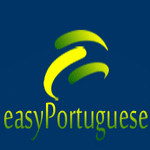
How to Learn Portuguese: The Complete Guide for Absolute Beginners
So you want to learn Portuguese—a language of diversity, color, warmth, shared cultures and a very complex history.
But where to start?
Whether you’re interested in European Portuguese, Brazilian Portuguese or both, we’ve got you covered.
This post will act as your step-by-step guide with carefully selected resources to start your journey right.
And to make the most out of it, I recommend spending at least 20-60 minutes daily in active Portuguese study, putting these steps into action. Here’s how to learn Portuguese!
Contents
- Is Portuguese Hard to Learn?
- How to Learn Portuguese
- 1. Decide Which Portuguese Variant You Want to Study
- 2. Practice Pronunciation Using Music and Other Native Resources
- 3. Learn the Phrases That Serve You Best
- 4. Start Talking and Writing as Early as Possible
- 5. Take Portuguese Lessons Online to Boost your Grammar and Vocabulary
- 6. Study with Flashcard Apps
- 7. Explore Entertaining YouTube Channels
- 8. Read Portuguese and Brazilian Books
- 9. Have Language Exchanges with Native Portuguese Speakers
- More Resources to Help You Learn Portuguese
Download: This blog post is available as a convenient and portable PDF that you can take anywhere. Click here to get a copy. (Download)
Is Portuguese Hard to Learn?
The level of difficulty for learning Portuguese depends on the individual learner. It relies on factors like how much time you can commit and what kind of resources you have to help you learn.
If you know a Romance language, you already have the upper hand—especially if you know Spanish, as the two languages are incredibly similar!
Fortunately, there are thousands of resources for learning Portuguese online, and many of them are free. Paying for premium resources will often get you faster results, but it’s still absolutely achievable to learn Portuguese without paying a cent.
Keep reading for some of the best strategies and resources for learning Portuguese.
How to Learn Portuguese
1. Decide Which Portuguese Variant You Want to Study
There’s no such thing as a right or wrong dialect in Portuguese. There isn’t a variant that’s more correct than the other, more appropriate than the other, or more truthful or “authentic” than the other.
You can decide which dialect to study based on the following factors:
- How important is the number of speakers for you? You might want to go for Brazilian Portuguese (approximately 182 million speakers) rather than European Portuguese (approximately 10 million speakers). It’s also interesting to consider that Portuguese is spoken in African countries, too—such as Angola, Cape Verde, Guiné-Bissau, Mozambique and São Tomé e Príncipe. The African dialects are much more similar to the one spoken in Portugal.
- What region of the world are you interested in? It might be easy to choose a dialect based on the culture you’re most drawn to. Portuguese-speaking countries have cultures that play around a lively social life, delicious food, the beach and friendly weather that invites you to go out and get some sun. The difference lies primarily in music and dance traditions, common everyday communication and history.
- Which dialect sounds best to you? You might go with your intuition. When you listen to the Angolan dialect, the Portuguese dialect, the Brazilian dialect or even the Cape Verdean dialect, which speaks the most to you?
- Where do you see yourself going? You might think a dialect sounds fantastic, but never picture yourself visiting its country or you don’t believe you’d be compatible with its culture. And that’s fine! Choose a dialect you think will be more useful for you, either in terms of career, travel prospects or even a potential place you could call home in the future.
Finally, realize that a choice doesn’t have to be made.
Most speakers from different countries can still understand each other.
Once you learn one version of Portuguese, you can always adapt and see the main differences between dialects. It isn’t impossible—or even that difficult—to jump to European Portuguese after learning the Brazilian dialect, for instance.
Here are the most common characteristics of Brazilian Portuguese:
- Discourse markers like né? (isn’t it?) or oi? to show you haven’t understood something
- Interchangeable use of tu and você
Here’s a sampling of what Brazilian Portuguese sounds like:
While European Portuguese is extremely similar to Brazilian Portuguese in appearance and writing, pronunciation will immediately help you distinguish which one it is.
Here are the characteristics of European Portuguese:
- The “sh” sound and closed vowels that don’t open your mouth too much, giving it a very Eastern European melody
- The use of você is almost nonexistent nowadays
- Common discourse markers tipo (like), pá and epá/opá
- The Angolan word bué used to mean “a lot” or “much”
Here’s what European Portuguese sounds like:
2. Practice Pronunciation Using Music and Other Native Resources
All Portuguese dialects share common features when it comes to pronunciation:
- Nasalization of vowels (speaking some vowels through your nose, for example -ão, -ãe, -em, -ém)
- Tricky lh and nh digraphs
- The tendency to almost completely disregard vowels at the end of words, which is even more evident in Portugal
If you often mistake Portuguese for Spanish, be aware that Portuguese never uses words with -ie-. It simplifies them.
For example, the Spanish words tiempo (time), quiero (I want), tiene (he/she has) or bien (well) become tempo, quero, tem and bem in Portuguese, regardless of the dialect.
It’s also important to practice the different “r” sounds in Portuguese and its intonation patterns to sound more like a native speaker.
Music
Music is a fantastic place to start getting used to pronunciation.
Both Brazil and Portugal offer a huge variety of music genres, like samba (and its subgenre pagode), bossa nova, funk, alternative rock, great pop songs to dance to, fado, indie rock bands and creative rap songs.
Both countries showcase contributions from African cultural influences in their music, not to mention a powerful tradition of protest songs.
I recommend the Fluent Forever Pronunciation Trainer Resources to practice your listening skills and improve your pronunciation.
It focuses on phonetics, vowels, lots of repetition and spelling rules, making it very useful for beginners.
Here is the Brazilian Portuguese version and the European Portuguese version!
Podcasts and radio
European Portuguese:
 RTP Play. RTP (Rádio e Televisão de Portugal) is a public radio and TV station known for its news channels, documentaries and cultural programming. You can also access several soap opera episodes here. However, these don’t have subtitles and they can feel quite challenging.
RTP Play. RTP (Rádio e Televisão de Portugal) is a public radio and TV station known for its news channels, documentaries and cultural programming. You can also access several soap opera episodes here. However, these don’t have subtitles and they can feel quite challenging.- Conta-me Tudo. Conta-me Tudo interviews common people as well as public figures about real-life stories. The podcast is particularly useful to learn common everyday expressions and funny Portuguese phrases, and to practice listening comprehension with a touch of humor.
- Rádio Comercial. This station conquered the Portuguese with its sense of humor, diverse podcasts, contemporary music and casual attitude. Their podcast list includes topics as distinct as love and relationships, travel and comedy.
Brazilian Portuguese:
- Jovem Pan Online. If you’re into politics, the latest news, sports and opinion, you’ll find something that speaks to you here. You have more than 30 podcasts to choose from, with topics as different as technology, soccer, culture and cinema.
 Antena 1. Antena 1 advertises itself as the most listened-to radio station in Brazil. Not only does it provide the latest news on international music, but it also has the option to let you listen to the radio station live from the website with a side-by-side translation from English to Portuguese for each song!
Antena 1. Antena 1 advertises itself as the most listened-to radio station in Brazil. Not only does it provide the latest news on international music, but it also has the option to let you listen to the radio station live from the website with a side-by-side translation from English to Portuguese for each song!- PortuguesePod101. With PortuguesePod101, you can sort podcast episodes by level and choose from over 1,180 audio and video lessons. You’ll also have access to spaced repetition flashcards to help you remember vocabulary and detailed PDF lesson notes.
- Podcast Café Brasil. This podcast is all about education, society, literature, culture and psychology. If you’d like to feed your brain interesting content in Portuguese rather than sticking to the basics, this podcast will challenge you and contribute to your self-improvement.
Other native media
- TV shows and series. Watching Portuguese TV shows is an excellent way to sharpen your listening skills and see Portuguese spoken in context by native speakers. Check out our blog post here for the best Portuguese TV series to watch.
- Portuguese movies. If you prefer to watch stories develop over a couple hours rather than several seasons, you can always watch Portuguese movies. Check out this blog post for our best selection of Portuguese films.
- YouTube videos. Lastly, you can find a never-ending supply of videos on the Portuguese side of YouTube, from makeup tutorials to daily vlogs. Depending on your level, you can opt for native Portuguese speakers’ channels made with other native speakers in mind as their audience, or you can find multiple Portuguese learning channels.
3. Learn the Phrases That Serve You Best
After getting the hang of pronunciation, it’s time to decide on your purpose for learning Portuguese before following the next few steps.
Maybe it’s because you think Portuguese sounds pleasant and you’re just having fun. In that case, it’s okay to learn phrases and vocabulary in a progressive, level-by-level logic (introductions, family, countries and nationalities, moving on to jobs and career, etc).
For example, you can start with “Qual é o seu nome?” (What’s your name?), “De onde você é?” (Where are you from?) and “O que você gosta de fazer no seu tempo livre?” (What do you like to do in your free time?)
However, if you have a very specific goal—such as getting a job in Brazil, visiting family in Portugal or traveling to Cape Verde—you might want to limit your phrase list and focus on particular topics that will be useful to you.
Omniglot is a helpful platform for anybody getting started in any language.
It presents the most common phrases in Brazilian Portuguese and European Portuguese, giving you an overall idea of how to get started.
You can also begin with these common greetings (both dialects) and basic Portuguese phrases to use in your first conversations.
4. Start Talking and Writing as Early as Possible
I know—speaking and writing in a new language can be a terrible source of anxiety and cause you to feel overwhelmed and awkward.
But by practicing these skills as soon as possible, you’ll…
- Get a much-needed confidence boost to energize your future learning
- Understand just how different the language can sound when spoken by natives compared to grammar manuals
- Immediately make trustworthy connections (teachers, tutors) who can help you with questions about slang, word choice and grammar
Writing will also play a huge part in your development.
It’s a different way of producing language, but it gives you more time to think and doesn’t place as much pressure on you as speaking.
This allows you to practice new phrases, expressions and vocabulary on paper to warm up for your speaking practice!
Here are some tools where you can find professional teachers and tutors who can help you, especially with speaking:
 Italki. Italki lets you take one-on-one video lessons with Portuguese tutors. You can pay for lessons as you go (there isn’t a fixed monthly cost), keep track of your lessons, receive customized feedback from your teacher and go through teacher profiles until you find the one that suits you best. Check out our full review here.
Italki. Italki lets you take one-on-one video lessons with Portuguese tutors. You can pay for lessons as you go (there isn’t a fixed monthly cost), keep track of your lessons, receive customized feedback from your teacher and go through teacher profiles until you find the one that suits you best. Check out our full review here.- Verbling. As soon as you visit the website, Verbling asks if you’ve ever studied the language before and what your motivation is behind learning Portuguese (is it travel? Work? Family? A hobby?). Verbling also allows you to try a 30-minute lesson for free and search for teachers by skill (accent reduction, phonetics, interview preparation, etc).
5. Take Portuguese Lessons Online to Boost your Grammar and Vocabulary
A guided set of lessons is a great way to start learning Portuguese. Fortunately, there are plenty of options for that online, as well!
These resources can help you with important grammar topics such as with Portuguese verbs and their conjugations, as well as nouns and their gender.
 Memrise (both European and Brazilian Portuguese). Memrise uses video, audio and multiple-choice exercises to train your vocabulary skills. Their extremely diverse course options and the SRS-based flashcard program makes learning and remembering new vocabulary easy. Check out our full review here.
Memrise (both European and Brazilian Portuguese). Memrise uses video, audio and multiple-choice exercises to train your vocabulary skills. Their extremely diverse course options and the SRS-based flashcard program makes learning and remembering new vocabulary easy. Check out our full review here.- Pimsleur (both European and Brazilian Portuguese). Aside from its audio-based 30-minute lessons, Pimsleur also has specialized reading lessons, role-play activities, skills badges and what they call “lightbulb moments,” in which history and culture lessons are provided to create a more fulfilling learning experience. Check out our full review here.
- Babbel (Brazilian Portuguese only). One of the most popular apps for language learners, Babbel is known for its clean design, clear grammar explanations, reference dialogues and pronunciation practice exercises with an integrated speech recognition tool. Even when you finish the predetermined Beginner and Intermediate courses, Babbel still allows you to take a refresher course, complete a grammar-only course, take a specialized course about Brazilian traditions or learn Portuguese idioms. Check out our full review here.
- Practice Portuguese (European Portuguese only). From podcasts with transcripts to funny videos, grammar modules, learning notes and a full-on learning studio, this resource has it all!
6. Study with Flashcard Apps
Free flashcard apps have become a part of practically every language learner’s journey, especially nowadays with technology.
 I suggest that you use Quizlet or Anki App to create your own flashcards.
I suggest that you use Quizlet or Anki App to create your own flashcards.
It’s important you start using your newly learned Portuguese vocabulary to fit your personal situation as much as possible.
So rather than grouping all the words you learn as you go and creating hundreds of flashcards, I recommend you choose the ones that are most significant to your personal situation!
Many flashcard apps also have automatically scheduled review periods or use Spaced Repetition Software (SRS), a technique that prompts you to review difficult words more often and easier words less frequently.
7. Explore Entertaining YouTube Channels
YouTube is another goldmine for Portuguese learners who prefer a more visual learning style and want to improve their listening skills.
- Bumba na Fofinha (European Portuguese). Mariana Cabral became popular due to her rants and funny commentary on Portuguese society, beauty standards, trends (such as running, yoga or detox) and her own personal quirks.
- Wuant (European Portuguese). Wuant is one of the biggest Portuguese YouTubers famous for his viral content of “Top 10s,” funny memes and his reactions to scary or disgusting footage. Viewers love how he manages to be spontaneous, loud, casual and relatable in his way of talking, all while staying sensible and caring when the time is right.
- Gato Fedorento (European Portuguese). Mention Gato Fedorento (literally “smelly cat”) in Portugal, and anyone will be surprised. Everybody knows this group of comedians, but they don’t have much traction outside of Portugal due to their type of humor, which is largely centered around the Portuguese language and its quirks!
- Felipe Neto (Brazilian Portuguese). Felipe Neto first got popular due to his angry videos about movies and celebrity opinions, criticizing them humorously. These days, his channel has grown and he makes videos about curiosities and “best of’s.”
- Whindersson Nunes (Brazilian Portuguese). Whindersson Nunes has conquered YouTube with his comedic videos about Brazilian society, class inequality, money issues, Brazilian soap operas and even the Discovery Channel! You’ll surely get a great laugh and start getting familiar with Brazilian slang and filler words right from the start.
- Porta dos Fundos (Brazilian Portuguese). Porta dos Fundos has become an iconic comedy group in Brazil and Portugal, and most comedy enthusiasts will know who you’re talking about if you mention them! They create absurd, hilarious sketches on current trends, miscommunication, career expectations, relationships and social issues.
For a full list of the 29 best Portuguese YouTube channels, check out our post here.
8. Read Portuguese and Brazilian Books
Books are essential language-learning resources if you plan on boosting your Portuguese.
Not only do they introduce you to common expressions people use in real life, but they also expand your vocabulary on more specific topics, challenge you to read what native speakers read and make fantastic conversation topics when practicing speaking.
Whether you’re a fan of audiobooks in Portuguese or going after some easy reads, we’ve got you covered!
Elementary and intermediate books
Children’s literature is an excellent bet for those just starting with the language. The topics are in-touch with everyday life, the vocabulary is accessible and the overall structure is usually easier to follow.
 I recommend you start with the collection “Uma Aventura” (“An Adventure”) if you’re learning European Portuguese.
I recommend you start with the collection “Uma Aventura” (“An Adventure”) if you’re learning European Portuguese.
This series became extremely popular because each book narrates the adventures of a group of friends in a different place in Portugal.
As for Brazilian Portuguese, the collections “Vaga-Lume” and “Turma da Mônica” (“Monica’s Class”) are absolute classics and great conversation starters, as their characters have become so iconic.
You’ll love the last one if you’re into comic books!
Translations of English books
Pretty much all fantasy books have a translation in Portuguese, including popular titles like “Harry Potter,” “Lord of the Rings” (“A Amizade em O Senhor dos Anéis”), “Twilight” (“Crepúsculo“) and “The Hunger Games” (“Jogos Vorazes”).
You can also go for classics like “Pride and Prejudice” (“Orgulho e Preconceito“) or even non-fiction classics like “The 7 Habits of Highly Effective People”(“Os 7 Hábitos das Pessoas Altamente Eficazes”).
All you have to do is search Amazon for your favorite books and include “in Portuguese” or “Portuguese edition” in the search.
Portuguese classics and poetry
Both Portugal and Brazil have frequent meetups, conferences and festivals that celebrate all types of literature in the Portuguese language.
In Portugal, you can’t avoid the legendary modernist poet Fernando Pessoa, Nobel-prize winner and novelist José Saramago and contemporary icon Valter Hugo Mãe.
As for Brazilian literature, some must-reads are the modernist poet Carlos Drummond de Andrade, novelist and journalist Paulo Coelho and legend Jorge Amado.
They aren’t the easiest to read and are more appropriate for advanced readers, but you shouldn’t cross them off your list!
You can also easily find several platforms that provide Portuguese books for both dialects, including free e-books you can download in seconds.
9. Have Language Exchanges with Native Portuguese Speakers
When you’re ready to start having simple conversations, it’s time to find a language exchange partner!
Language exchange partners are different from teachers—and they’re free.
You connect with someone who is learning a language that you speak to help them learn that language and in return, they help you learn and practice Portuguese.
It’s a win-win for both parties!
Two of the most world-renowned apps for finding language exchange partners are HelloTalk and Tandem.
More Resources to Help You Learn Portuguese
Easy Portuguese
If you want to learn basic Portuguese, Easy Portuguese is a good way to start.
It offers a mixture of Brazilian and European Portuguese.
Vocabulary lists are neatly organized by theme, so you can study common vocabulary in groups like animals, clothing, food, greetings and more. Plus, each vocabulary list comes with audio to help you nail the pronunciation.
Easy Portuguese also offers grammar lessons on topics like verb conjugations, word gender, pronouns and more.
FluentU
This language immersion program takes you into the heart of the Brazilian Portuguese language through authentic videos created by and for native speakers. As you watch, you’ll not only hear native pronunciation and slang, but you’ll also learn more about Brazilian culture through media like movie clips, news segments, music videos and more.
Videos are categorized by level, topic and format, and include interactive captions to keep you learning while you watch. You can add unknown words directly from videos to flashcard decks to focus on during reviews.
After each video, you’ll be presented with a customized quiz to drill what you’ve learned from the video.
ielanguages.com
Want a good, basic primer to familiarize yourself with both variations of Portuguese? Try this one on for size.
This free website focuses on general rules and vocabulary terms that apply to both variations of the language. It also includes special notes when there’s a difference between the two, making it useful no matter which type of Portuguese you’re studying.
You can learn all the basics here, including the alphabet, pronunciation rules and simple vocabulary and grammar rules.
Learn Portuguese Now
Learn Portuguese Now has lots of free resources to help beginning students test the waters of Brazilian Portuguese.
One awesome feature is the list of common words. Each list includes a variety of associated activities, like a matching game, flashcard set, test and more. You’ll also find example sentences to show you the vocabulary in context. There’s even audio to help you learn the right pronunciation.
With other great features like free audiobooks, common phrases, beginning-level lessons, grammar lessons, idioms, cooking lessons and more, you’ll never run out of beginner-friendly learning materials!
“Learn Portuguese: 500 Basic Portuguese Phrases For Beginners”
Sometimes, you just want to sit back, chill and watch YouTube videos. That doesn’t mean you can’t start learning Portuguese at the same time!
This YouTube video focuses on teaching basic words and phrases used in Brazilian Portuguese. The words appear on the screen in both Portuguese and English, while the speaker (“Polyglot Pablo”) says them twice in Portuguese: first at a normal rate, then slowly, giving you the opportunity to note the finer points of the pronunciation.
There are 500 different words/phrases, so you’ll learn plenty of great vocabulary concerning greetings, basic questions, common phrases and more.
While the video’s worthy of your full focus, at nearly 53 minutes long it’s also great to have on while you’re doing other things, like cooking, showering or even falling asleep. No reason you can’t start studying Portuguese even if you don’t have time to devote solely to language study!
“Practice Makes Perfect: Basic Portuguese”
There’s something to be said for a good old-fashioned workbook. In a workbook, learning material is conveniently organized into digestible chunks and you never have to wonder what to study next.
And for workbook fans, “Practice Makes Perfect: Basic Portuguese” is a great way to start studying Portuguese. While the main focus of the book is European Portuguese, many Brazilian variations are also noted.
The book is divided into bite-sized lessons that introduce basic grammar rules and vocabulary. There are plenty of examples to show what you just learned in action. Then, the lesson ends with several activities to help you use the newly learned material.
Plenty of great vocabulary and grammar will carry you through to a much higher level of proficiency, but be prepared to supplement your conjugation education: This book only covers the present tense. With all the other material you can learn from the book, the rest of your vocabulary and grammar will likely end up more advanced than your conjugation abilities unless you pair it with another resource.
Do you feel better prepared to learn Portuguese?
I recommend you follow these steps one by one and create your own customized Portuguese learning schedule with a healthy combination of apps, speaking lessons and comprehension practice.
This way, you’ll maximize your Portuguese learning experience and be able to make connections as soon as possible!
Download: This blog post is available as a convenient and portable PDF that you can take anywhere. Click here to get a copy. (Download)






